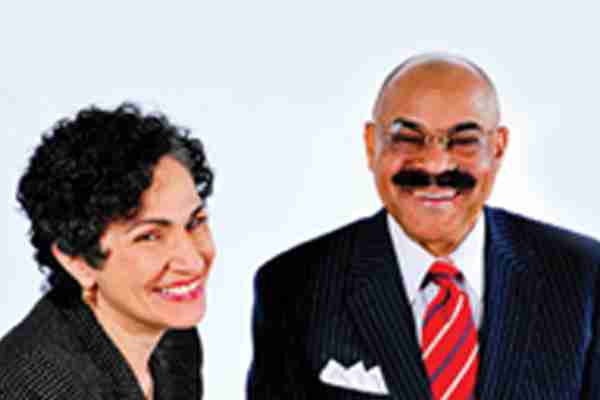By MEL AND PEARL SHAW
Are you effectively using the resources available to you? Are your programs making an impact? Do you try new ideas? Have you explored the “two-generation” to addressing poverty? Do you understand poverty as a “condition” – similar to a medical condition – that has a standard of care? We recently had the opportunity to learn from three women and the approaches they use to help vulnerable children and their families. We attended two presentations by national thought leaders and “doers.” We want to share just a little of what we learned to encourage you to investigate these resources and explore whether or not these models – or aspects of these models – can work for your organization.
Anne Mosle leads the Aspen Institute Ascend Fellowship bringing together pioneering leaders from across the country who are “piloting, replicating, and scaling two-generation approaches, enabling them to share knowledge, coordinate their efforts, and translate groundbreaking ideas into action.” The two-generation approach looks at the whole family: children and their parent(s). When working with children, you need to work with their parent(s) as well. When working with adults you need to look at the needs of the children. The two-generation approach can be applied to programs, policies, systems, and research. It is in use across the country – and especially in Memphis.
Dr. Raquel Hatter, Tennessee Commissioner of Human Services shared how the two-gen approach is being implemented across the state in addressing poverty. She believes in partnering with families and community organizations to better position families to create cycles of success. She is committed to transforming the human service sector and is an Ascend Fellow.
Dr. Marcella Wilson has an approach that integrates with “two-gen.” She encourages people to understand poverty as a “treatable condition” and not a “character flaw.”
By approaching poverty as a ‘condition’ Marcella Wilson, PhD, is overturning decades of well-intentioned but ineffective remedies.” She shared her model Transitions to Success – one that is being implemented in organizations across the country.
We truly appreciated the opportunity to learn from leaders who are developing and implementing effective ways to create pathways out of generational poverty. And that is a message that donors want to hear: are you being as effective as you can be? Are you doing what you believe is best, or are you implementing – and refining – best practices
When reviewing your fundraising, take time to look at your programs and ask “are we doing things the best way possible?” Your donors and supporters want to know you take time to evaluate “how and what” you do. There is an increasing movement in philanthropy that focuses on effectiveness. The question, as it relates to fundraising is this: are you effectively using the resources available to you? When you make changes to improve your impact let your supporters know what you are doing. They are, after all your partners, and we are all in this together.
Resources: order Dr. Wilson’s new book Diagnosis: Poverty. Visit www.aspeninstitute.org/programs/ascend/ to learn more about the two-gen model.
Copyright 2016 – Mel and Pearl Shaw Mel and Pearl Shaw are authors of the new book
FUNdraising Good Times Classics Vol. 1 now available on Amazon.com. For help growing your fundraising visit www.saadandshaw.com or call (901) 522-8727.












No Comment